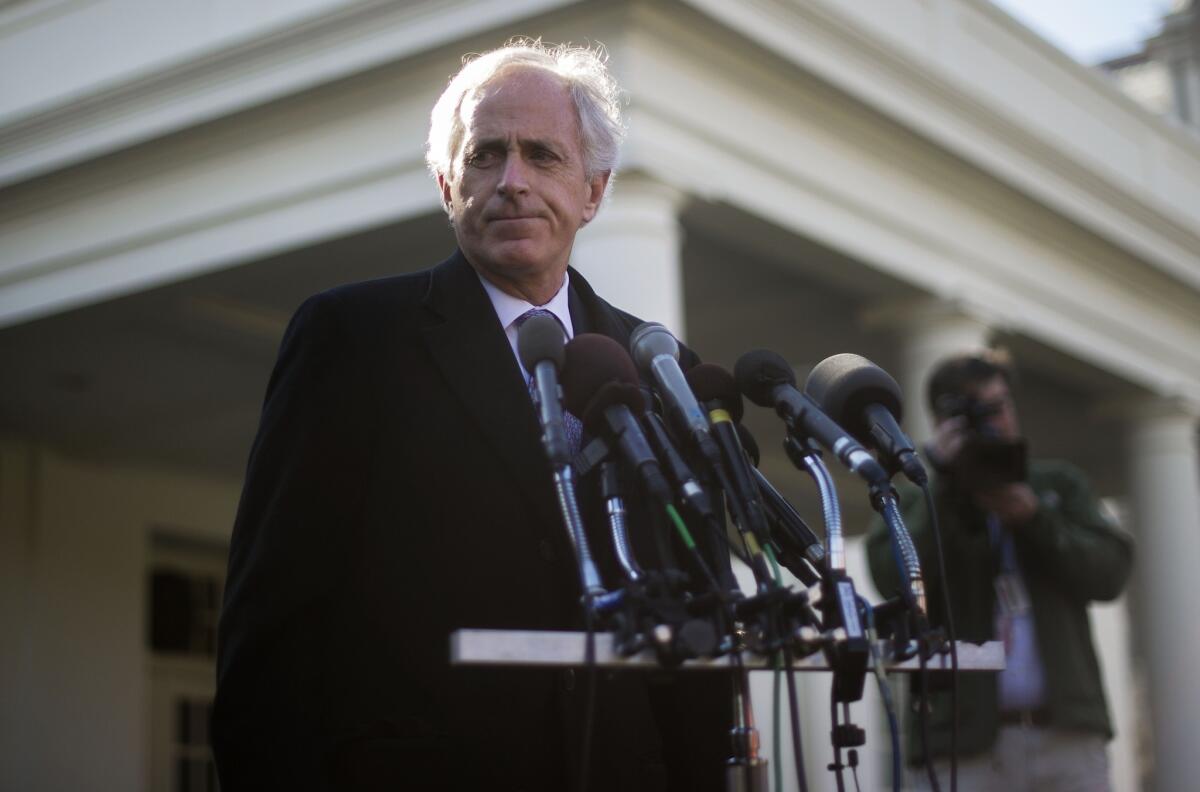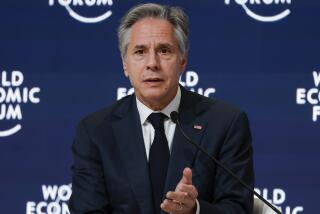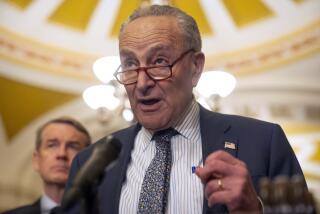Obama asks Senate leaders to hold off on new Iran sanctions

WASHINGTON – A day before the United States and allies are to reopen talks on Iran’s disputed nuclear program, President Obama asked Senate leaders Tuesday to hold off on imposing new sanctions on the Islamic Republic to give the negotiations a chance to work.
In a closed-door meeting at the White House that ran nearly two hours, Obama told lawmakers of both parties that the negotiations resuming this week in Geneva represented the best chance of “stopping the advance of [Iran’s nuclear] program for the first time in nearly a decade,” Press Secretary Jay Carney said.
In exchange for taking some steps to suspend its nuclear program, Carney said, Iran would be given “limited, temporary and reversible” relief from some sanctions under a proposal by the so-called P5-plus-1: the five permanent members of the U.N. Security Council – the United States, Britain, China, France and Russia – and Germany. The measures reportedly include giving Iran access to billions of dollars’ worth of capital frozen in foreign banks under Western sanctions.
The six-month deal also would allow for more international inspections of Iranian nuclear sites, which the White House says would offer “unprecedented transparency” in a program that many countries fear is intended to develop a nuclear weapon.
With the negotiators believed to be nearing a preliminary deal, pro-Israeli groups have mounted a fierce lobbying campaign against lifting any sanctions, saying it would threaten Israel’s security. Lawmakers in both parties have also expressed skepticism of the diplomatic track, with some saying it amounts to appeasement.
After the meeting, Sen. Bob Corker, the ranking Republican on the Foreign Relations Committee, said some senators left the White House “very unsatisfied” with Obama’s case.
“People are concerned that we’re giving up some leverage” by offering Iran even temporary relief from the sanctions, Corker said.
But the Tennessee Republican ruled out the possibility that the Senate would vote on legislation strengthening sanctions before Monday, the start of a weeklong Thanksgiving recess. That buys the administration breathing room to pursue a deal in Geneva in talks due to start Wesnesday.
The White House meeting included Secretary of State John Kerry, National Security Advisor Susan Rice and the chairmen and ranking members of the banking, foreign relations, armed services and intelligence committees.
The Obama administration says it has imposed the stiffest economic penalties ever on Iran but believes that tightening sanctions now would destroy a chance for a diplomatic settlement with Iran’s new president, Hassan Rouhani, a moderate cleric.
Obama’s position is “that new sanctions should not be enacted during the current negotiations, but that they would be most effective as a robust response should Iran not accept the P5-plus-1 proposal or should Iran fail to follow through on its commitments,” Carney said.
In a letter released Tuesday, senior lawmakers of both parties warned Kerry against pursuing a deal that would give Iran relief from sanctions without demanding that it roll back – not merely freeze – some aspects of its nuclear program.
“We are concerned that the interim agreement would require us to make significant concessions before we see Iran demonstrably commit to moving away from developing a nuclear weapons capability,” said the letter, which was signed by Sens. John McCain (R-Ariz.), Lindsey Graham (R-S.C.), Charles Schumer (D-N.Y.) and Robert Menendez (D-N.J.), among others.
Speaking after the meeting, Obama offered no guarantees on the success of the talks in Geneva but said the proposal backed by his administration would leave in place the toughest sanctions on Iran, including those affecting the country’s oil and financial sectors.
“What we are suggesting, both to the Israelis, to members of Congress here, to the international community, but also to the Iranians, is let’s look, let’s test the proposition that over the next six months we can resolve this in a diplomatic fashion while maintaining the essential sanctions architecture, and as president of the United States, me maintaining all options to prevent them from getting nuclear weapons,” Obama said at the Wall Street Journal CEO Council, an annual meeting of executives.
“I think that is a test that is worth conducting.”
ALSO:
‘Selfie’: 2013’s word of the year
Germany’s shamed ‘Bishop of Bling’ pays fine to settle court case
U.S. leads Philippine disaster relief but most Americans unengaged
shashank.bengali@latimes.com
Twitter: @SBengali
More to Read
Sign up for Essential California
The most important California stories and recommendations in your inbox every morning.
You may occasionally receive promotional content from the Los Angeles Times.











